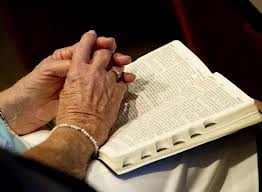All scripture is inspired by God and is useful for teaching, for reproof, for correction, and for training in righteousness, so that everyone who belongs to God may be proficient, equipped for every good work. [2 Timothy 3:16-17, NRSV]
Romanian Orthodox Icon of St. Ephraim the Syrian. [R]
Ephrem the Syrian [306-373] was a Syriac deacon and a prolific theologian of the 4th century from the region of Syria. Venerated as a saint, he has been declared a Doctor of the Church in Roman Catholicism. The Roman Catholic feast day of Saint Ephrem is 9 June, his date of death.Naturally, he is especially beloved in the Syriac Orthodox Church.
While his great variety of written works included sermons and biblical exegesis, they were largely works of practical theology for the edification of the Church in troubled times. His popularity meant that for centuries after his death, Christian authors would write hundreds of pseudepigraphal works in his name. There is a special benefit in reading Saint Ephrem’s works in that they witness to an early form of Christianity uninfluenced by Western ideas.
Of special interest is a piece St Ephraem wrote about how to approach the Sacred Scriptures. Needless to say, one can profitably apply his insights to any great text. In particular, these insights draw out three effects:
- how one should have the appropriate attitude of humility when one stands before these texts,
- how one should be grateful for any understanding one is able to gain from them, and
- how one should remain unperturbed by the knowledge that there will be great depths of wisdom one will simply be unable to fathom at any given moment.
Lord who can grasp all the wealth of just one of your words? What we understand is much less than we leave behind; like thirsty people who drink from a fountain. For your word, Lord, has many shades of meaning just as those who study it have many different points of view. The Lord has coloured his word with many hues so that each person who studies it can see in it what he loves. He has hidden many treasures in his word so that each of us is enriched as we meditate on it.
The word of God is a tree of life that from all its parts offers you fruit that is blessed. It is like that rock opened in the desert that from all its parts gave forth a spiritual drink. He who comes into contact with some share of its treasure should not think that the only thing contained in the word is what he himself has found. He should realize that he has only been able to find that one thing from among many others. Nor, because only that one part has become his, should he say that the word is void and empty and look down on it. But because he could not exhaust it, he should give thanks for its riches.
Be glad that you are overcome and do not be sad that it overcame you. The thirsty man rejoices when he drinks and he is not downcast because he cannot empty the fountain. Rather let the fountain quench your thirst than have your thirst quench the fountain. Because if your thirst is quenched and the fountain is not exhausted, you can drink from it again whenever you are thirsty. But if when your thirst is quenched and the fountain is also dried up, your victory will bode evil for you.
So be grateful for what you have received and don’t grumble about the abundance left behind. What you have received and what you have reached is your share. What remains is your heritage. What at one time you were unable to receive because of your weakness, you will be able to receive at other times if you persevere. Do not have the presumption to try to take in one draught what cannot be taken in one draught and do not abandon out of laziness what can only be taken little by little.
[From the commentary of St Ephraem on the Diatessaron, Office of Readings, Week 6 of the Year, Sunday]
Copyright © Dr. Jeffrey & Angie Goh, November, 2014. All rights reserved.
You are most welcome to respond to this post. Email your comments to us at jalcgoh@pl.jaring. You can also be dialogue partners in this Ephphatha Coffee-Corner Ministry by sending us questions for discussion.

